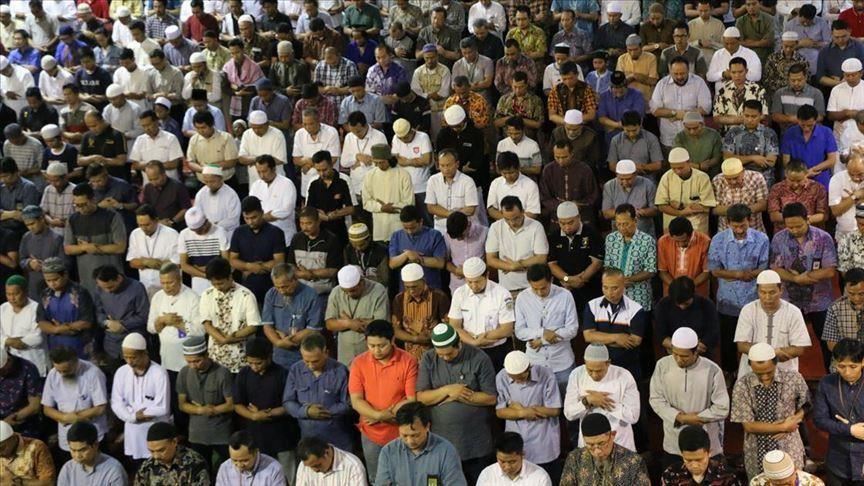COVID-19 affecting Ramadan traditions in Indonesia
Most Muslims will postpone, cancel traditions including grave pilgrimage, Eid-al-Fitr homecoming
 File Photo
File Photo
JAKARTA
Muslims will most likely spend Ramadan very differently than usual.
With just one week before the holy month, Indonesia reported more than 5,000 cases of coronavirus and the number continues to rise.
The Ministry of Religious Affairs issued guidelines earlier this month for prayers during the fasting month and for Eid al-Fitr 1441 Hijri amid the pandemic.
Worshippers are advised to have sahur, or pre-fast meal, and iftar -- the fast breaking dinner, individually or with family.
Special night prayers called tarawih, and Quran recital should also be performed at home.
Eid prayers at the end of the month which are commonly held in massive open spaces, mosques, or fields were canceled.
Istiqlal Mosque’s public relation and protocol division head Abu Hurairah said the biggest mosque in southeast Asian is no longer open for service.
“We will not hold congregational prayers for the time being,” he told Anadolu Agency, and explained the decision was made to support the government in preventing the spread of the virus.
The mosque can accommodate 10,000 to 15,000 worshippers every night for tarawih. And accommodate as many as 120,000 to 150,000 worshippers during the Eid prayer.
“We are facing an unprecedented situation. Maybe we can only hope for a miracle so things can return to normal soon,” Hurairah added.
No more pilgrimage and homecoming
Ika Defianti, 29, who lives in Bekasi, told Anadolu Agency she had to cancel pilgrimage plans to her father’s grave in Boyolali, Central Java, at the end of the month.
Most Indonesians usually visit family graves before Ramadan.
“I have bought flight tickets months ago and planned to take a week off. Then I decided to cancel it as I had to self-isolate for at least 14 days anyway,” she said.
Defianti is worried she might carry the virus and spread it to her family and toddlers who are vulnerable to infection as her grandmother is in her 70s and has a history of asthma.
Millions usually leave big cities and return to their hometowns at the end of Ramadan to celebrate Eid-al-Fitr with family in a tradition known as “mudik.”
Although there is no prohibition on the homecoming, the government cautioned restraint to stop the spread of the virus.
“Every year, I always go to my hometown and celebrate Eid-al-Fitr with my family. As my family lives in different cities, this is our annual tradition to gather,” said Hanif Gusman, 27, a private company worker who lives in Jakarta, who had to cancel his mudik to West Sumatra.
Gusman said he would rather celebrate Eid in his dorm than at home because he would be considered a "person under monitoring" and told to self-quarantine.
Meanwhile, Jakarta resident Abdul Rochim is rescheduling plans to visit his family’s graves in Lamongan, East Java.
“Grave pilgrimage is a part of our duties to pay respect towards our parents, elders, and ancestors who have died. However, I chose not to go home as for now,” he said.
Spiritual journey
Muslims also believe the tradition of visiting graves is a ritual performed to remember death and life in the hereafter.
“It reminds us that people will die and every journey will end eventually,” according to Arizal Mutakhir, a sociologist from University of Jenderal Soedirman, who said the pilgrimage is a “spiritual journey” to remember or pay respect to the deceased.
Some would probably would feel “the lack of spiritual journey,” by not visiting the graves, said social-cultural expert Ahmad Tohari.
“Because pilgrimage is their chance to connect with their families and ancestors and they can not do that,” he added.
*Writing by Maria Elisa Hospita from Anadolu Agency's Indonesian language service in Jakarta.








